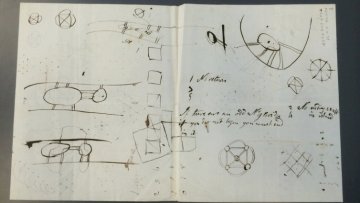14:00
Post-Snowden Cryptography
Abstract
Recently, a series of unprecedented leaks by Edward Snowden had made it possible for the first time to get a glimpse into the actual capabilities and limitations of the techniques used by the NSA and GCHQ to eavesdrop to computers and other communication devices. In this talk, I will survey some of the things we have learned, and discuss possible countermeasures against these capabilities.
Limits of $\alpha$-harmonic maps
Abstract
I will discuss a recent joint work with A. Malchiodi (Pisa) and M. Micallef (Warwick) in which we show that not every harmonic map can be approximated by a sequence of $\alpha$-harmonic maps.
Nonlocal self-improving properties
Abstract
The classical Gehring lemma for elliptic equations with measurable coefficients states that an energy solution, which is initially assumed to be $H^1$ - Sobolev regular, is actually in a better Sobolev space space $W^{1,q}$ for some $q>2$. This a consequence of a self-improving property that so-called reverse Hölder inequality implies. In the case of nonlocal equations a self-improving effect appears: Energy solutions are also more differentiable. This is a new, purely nonlocal phenomenon, which is not present in the local case. The proof relies on a nonlocal version of the Gehring lemma involving new exit time and dyadic decomposition arguments. This is a joint work with G. Mingione and Y. Sire.
Sharp Trace-Sobolev inequalities of order 4
Abstract
We establish sharp Sobolev inequalities of order four on Euclidean $d$-balls for $d$ greater than or equal to four. When $d=4$, our inequality generalizes the classical second order Lebedev-Milin inequality on Euclidean $2$-balls. Our method relies on the use of scattering theory on hyperbolic $d$-balls. As an application, we charcaterize the extremals of the main term in the log-determinant formula corresponding to the conformal Laplacian coupled with the boundary Robin operator on Euclidean $4$-balls. This is joint work with Alice Chang.
When you think about the founders of computing you may think Alan Turing, you may even think Charles Babbage. But you should definitely think about Ada Lovelace. Ada is not only the link between Babbage and Turing, but a woman of fierce originality and intellectual interests whose ideas went beyond Babbage’s ideas of computers as manipulating numbers, and focused on their creative possibilities and their limits, the very issues with which we are wrestling today.
Numerical approximation of irregular SDEs via Skorokhod embeddings
Abstract
We provide a new algorithm for approximating the law of a one-dimensional diffusion M solving a stochastic differential equation with possibly irregular coefficients.
The algorithm is based on the construction of Markov chains whose laws can be embedded into the diffusion M with a sequence of stopping times. The algorithm does not require any regularity or growth assumption; in particular it applies to SDEs with coefficients that are nowhere continuous and that grow superlinearly. We show that if the diffusion coefficient is bounded and bounded away from 0, then our algorithm has a weak convergence rate of order 1/4. Finally, we illustrate the algorithm's performance with several examples.




